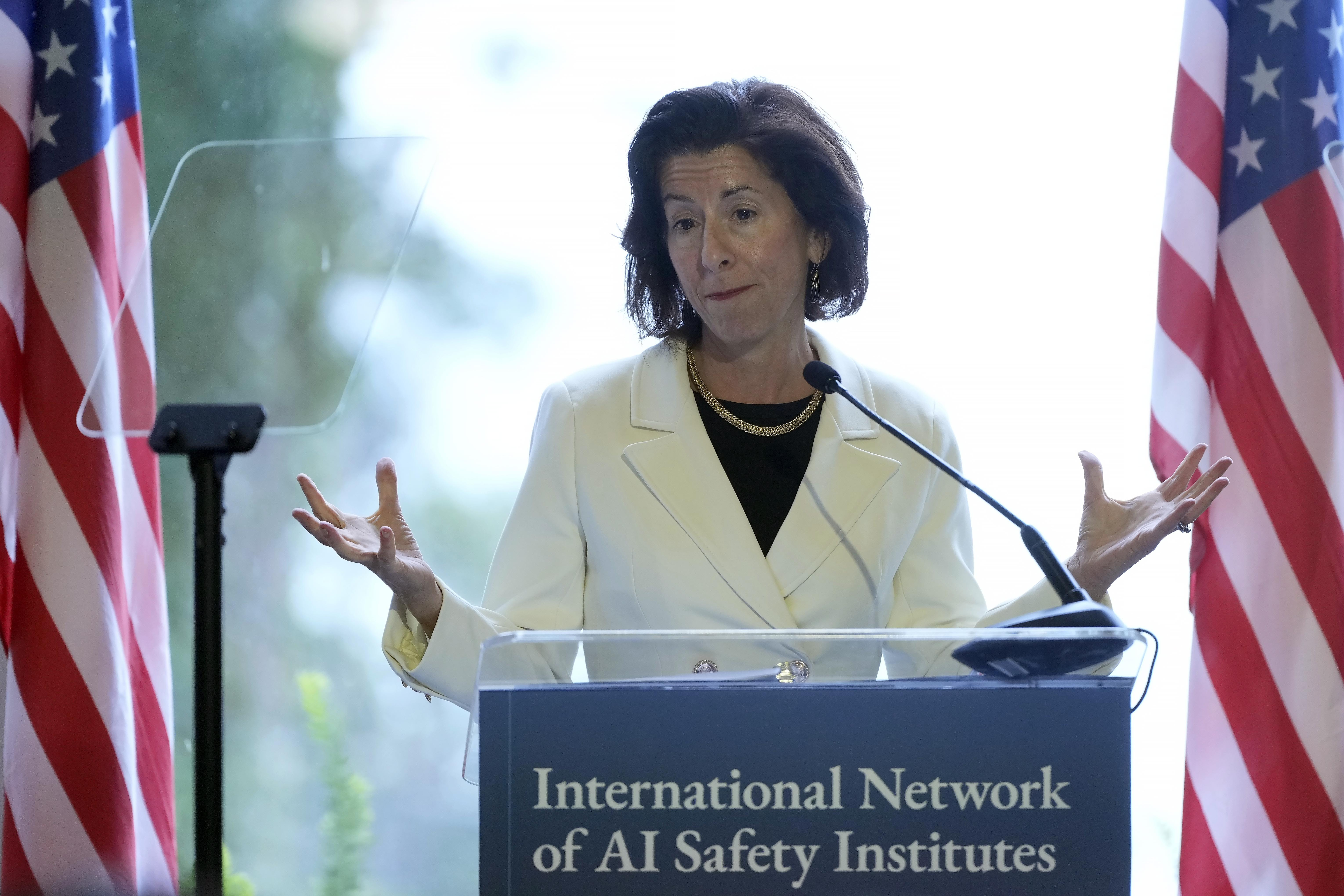
Gina Raimondo: Breaking Barriers in US Economy Policy
Gina Raimondo, a prominent figure in American politics, has made significant contributions to the U.S. economy during her tenure as the Secretary of Commerce and as the Governor of Rhode Island. Known for her innovative Gina Raimondo policies, she has focused on improving US competitiveness through bold economic reforms, including advocating for a minimum wage increase to support working families. Her commitment to change reflects the Biden administration’s broader goals of fostering equitable economic growth and resilience in the face of challenges like the COVID pandemic. Raimondo’s approach demonstrates a keen understanding of the intricate balance necessary for progress, ensuring that the impacts of change do not burden those who are most vulnerable. As she embarks on her vision for the future, her insights provide critical perspectives on how to navigate the complexities of the global economic landscape.
In the realm of U.S. governance, individuals like Gina Raimondo play crucial roles in shaping economic policy and driving forward initiatives that bolster national prosperity. Often regarded as a trailblazer in her field, her strategic decisions reflect a keen awareness of the need for adaptability in a fast-evolving economic environment. The approach to enhance job opportunities and advocate for better living standards, including the recent discussions on raising minimum wage, mirrors a broader trend seen within the current administration’s economic agenda. As discussions surrounding US economic strategies continue, the importance of fostering competitiveness on a global scale remains paramount, with leaders like Raimondo at the forefront of these transformative efforts. Ultimately, her career serves as a compelling blueprint for aspiring policymakers aiming to influence economic justice and growth.
Gina Raimondo’s Vision for Economic Reform
Gina Raimondo emphasizes the necessity of change in promoting economic growth and enhancing the US economy. As the former Governor of Rhode Island and U.S. Commerce Secretary, her policies have consistently focused on reducing barriers for working-class individuals, which she believes is vital for fostering competitiveness in a global market. By advocating for initiatives like raising the minimum wage and providing free community college, Raimondo illustrates her commitment to addressing economic disparity and giving everyone a fair chance at success.
In her approach, she acknowledges that reform often involves breaking away from traditional practices, which can be controversial. Raimondo argues that this willingness to disrupt the status quo is crucial to align with the evolving needs of the economy. Her strategy includes not only focusing on immediate economic gains but also ensuring that these changes do not disadvantage people—a principle she strongly upholds in her political career.
The Impact of the Biden Administration on the US Economy
Under the Biden administration, significant economic policies have emerged, particularly as a response to the challenges observed during the COVID-19 pandemic. The focus on rebuilding supply chains and promoting domestic production has been at the forefront, with initiatives like the CHIPs and Science Act aiming to secure vital resources within the U.S. The importance of fostering international relationships has also been highlighted, as Raimondo shared her experiences in negotiating with countries in Southeast Asia to bolster American manufacturing capabilities.
These actions reflect a broader vision for a competitive U.S. economy, one that relies less on global supply chains and more on domestic production to ensure resilience against future disruptions. In this context, policies devised by the Biden administration not only aim to secure economic recovery but also aim at establishing a more equitable economic landscape through strategic partnerships and investments in innovation.
Minimum Wage Increases: A Path to Economic Equity
One of the key components of Gina Raimondo’s economic policies during her tenure was the increase in the minimum wage, which she championed as essential for fostering economic equity. By raising wages, she aimed to empower low-income workers, ensuring that they receive adequate compensation for their labor, which in turn stimulates local economies as these workers are more likely to spend their earnings within their communities. This approach aligns with broader efforts to address income inequality, a topic that has gained increasing attention in contemporary discussions about the US economy.
The implications of raising the minimum wage extend beyond immediate financial relief; they contribute to a healthier economy overall. With more disposable income, low-wage earners can afford necessities and invest in their future, which boosts consumer spending—a critical driver of economic growth. Raimondo’s commitment to wage reforms is a reflection of her dedication to crafting a competitive American workforce that is resilient and continuously evolving.
Raimondo’s Approach to Supply Chain Resilience
Gina Raimondo’s tenure as Commerce Secretary highlighted the vulnerabilities in the U.S. supply chains, especially evident during the pandemic. She took proactive steps to understand and reinforce these supply chains by collaborating with various stakeholders, both domestic and international. The creation of detailed spreadsheets for critical supplies, particularly in pharmaceuticals, showcased a strategic approach to ensuring that essential goods remained available during crises, thereby enhancing overall competitiveness in the US economy.
The Biden administration’s efforts to work collaboratively with other countries to secure these supply chains reflect a critical shift towards prioritizing domestic production. Such measures not only bolster the economy but also emphasize the importance of self-reliance in key industrial sectors, thereby reducing dependency on foreign markets. Raimondo’s emphasis on building relationships with Southeast Asia serves as a forward-thinking strategy aimed at ensuring sustainable growth and national security.
Economic Fairness as a Foundation for Competitiveness
The core principle of economic fairness is pivotal in Gina Raimondo’s policies, which she believes are essential for enhancing U.S. competitiveness on the global stage. By advocating for strategies that prioritize everyday Americans, such as increased minimum wages and accessible education, she seeks to create a more equitable economic environment. This idea is rooted in the belief that a more inclusive economy leads to a stronger and more resilient workforce, capable of meeting future challenges.
Raimondo’s perspective posits that addressing disparities in economic opportunity directly correlates with the overall health of the US economy. In her discussions, she emphasizes the importance of ensuring that all workers have access to job training, childcare, and fair wages, as these factors are essential for attracting and retaining talent essential for innovation and development. This comprehensive view of economic reform lays a foundation for sustainable growth while improving Americans’ living standards.
Bipartisanship in Economic Policies
Gina Raimondo’s ability to navigate bipartisan discussions has been a hallmark of her tenure. In an environment characterized by a closely divided Congress, she has made significant strides in passing legislation that supports economic recovery. By fostering dialogue among different political factions, she managed to advocate for robust policies like the CHIPs Act which not only addresses the critical semiconductor industry but also showcases an example of bipartisanship working towards a common economic goal.
Raimondo acknowledges the challenges that come with such negotiations, finding common ground on contentious issues is crucial for implementing policies that benefit the economy at large. She believes that true progress is made when diverse political viewpoints find alignment on important issues, thus promoting an agenda that supports the overarching goal of enhancing US competitiveness in the global market.
Gina Raimondo: The Advocate for Workers’ Rights
Throughout her career, Gina Raimondo has emerged as a staunch advocate for workers’ rights, aligning her policies with the needs of the American workforce. Her approach towards enhancing labor conditions reflects a deep understanding of the economic landscape, whereby prioritizing workers’ rights translates into enhanced productivity and economic growth. By instituting policies aimed at increasing wages and improving working conditions, she has directly contributed to creating an environment where American businesses can thrive in the global economy.
Her experiences during the Biden administration reinforced her belief that supporting workers is not merely a social responsibility but a crucial economic strategy. The interplay between economic policy and workers’ rights became evident as she integrated labor initiatives into broader economic strategies, recognizing that sustainable growth can only be achieved when the workforce feels valued and respected. This advocacy positions Raimondo as a key figure in shaping a more equitable economic future.
Lessons from the COVID-19 Economic Impact
The COVID-19 pandemic presented unprecedented challenges, requiring rapid response and innovative solutions from leaders like Gina Raimondo. Her role during this time highlighted the critical importance of a resilient economy capable of withstanding shocks. By prioritizing the establishment of safety nets for unemployed workers and ensuring the continuation of essential services, she demonstrated a commitment to safeguarding the American workforce during difficult times.
Raimondo’s reflections on the pandemic also underscore the importance of preparedness in economic policy-making. Addressing the immediate needs of those affected by lockdowns highlighted the need for flexibility in economic planning, ensuring that policies can adapt to unforeseen circumstances. The lessons learned from this crisis emphasize a proactive approach towards economic recovery, focusing on sustainable practices that reinforce the US economy’s resilience moving forward.
Future Directions for U.S. Economic Policies
Looking forward, the future of U.S. economic policies hinges on innovation, inclusivity, and sustainability, principles championed by Gina Raimondo. Her advocacy for new technologies and domestic production aligns with the growing need for the U.S. to remain competitive in an ever-evolving global market. By investing in education and workforce development, policymakers can ensure that the labor force is equipped with the necessary skills to meet future demands, making economic growth more inclusive.
As Raimondo articulates her vision, the integration of social programs with economic initiatives could become a transformative strategy for the U.S. economy. This holistic approach seeks to create a more equitable landscape where all Americans benefit from economic growth, driving policy decisions that not only focus on growth metrics but also prioritize the well-being of the populace. Such foresight will be essential in addressing the multifaceted challenges posed by an evolving global economy.
Frequently Asked Questions
What are the key policies of Gina Raimondo that impact the US economy?
Gina Raimondo has implemented several impactful policies during her tenure as Governor of Rhode Island and as U.S. Commerce Secretary. She focused on economic growth by reducing taxes annually, increasing the state minimum wage, and making community college tuition free. These measures were designed to enhance opportunities for working Americans and support the U.S. economy.
How does Gina Raimondo contribute to U.S. competitiveness?
As a former U.S. Commerce Secretary, Gina Raimondo worked on boosting U.S. competitiveness by addressing supply chain complexities and advocating for the CHIPs and Science Act. This legislation aims to increase domestic semiconductor production, which is critical for maintaining national security and economic independence.
What role did Gina Raimondo play in the Biden administration’s economic initiatives?
Gina Raimondo was pivotal in the Biden administration by addressing supply chain challenges during the COVID pandemic and promoting the CHIPs and Science Act. Her role focused on building international relationships and supporting domestic manufacturing to enhance U.S. economic resilience and competitiveness.
How did Gina Raimondo respond to critiques of the Biden administration’s stimulus act?
Gina Raimondo defended the Biden administration’s stimulus act, arguing that while it was criticized for potentially causing inflation, it was essential in preventing higher unemployment rates during the pandemic. She emphasized the importance of substantial support to ensure economic recovery and protect vulnerable workers.
What is Gina Raimondo’s stance on minimum wage increases?
Gina Raimondo has been an advocate for raising the minimum wage. During her governorship, she successfully increased the state minimum wage, reflecting her commitment to improving income equality and supporting working families as part of her broader economic policies.
How does Gina Raimondo ensure fairness in economic policies?
Gina Raimondo emphasizes fairness in her economic policies by focusing on programs that support working-class Americans. She believes in designing labor market programs that require companies to establish childcare options to attract more women into the workforce, demonstrating her commitment to inclusive economic growth.
What does Gina Raimondo believe about free trade and China’s involvement?
Gina Raimondo views free trade as beneficial when all countries follow the rules. She acknowledges concerns about China’s non-compliance with trade regulations, advocating for more reciprocity to ensure a fair competitive environment for U.S. companies.
How does Gina Raimondo address supply chain issues in her strategy?
Raimondo tackles supply chain issues by creating critical supply chain spreadsheets, fostering international relationships, and supporting legislation that aims to bolster domestic production, especially in essential sectors like pharmaceuticals and semiconductors.
| Key Points | Details |
|---|---|
| Change and Progress | Gina Raimondo emphasizes that making positive change can require ‘breaking things’ and is necessary for progress. |
| Tax and Wage Policies | During her governorship in Rhode Island, she reduced taxes, raised the minimum wage, and made community college tuition free. |
| Regulatory Changes | Raimondo cut 30% of the state’s regulations, advocating for a more streamlined approach. |
| Supply Chain Management | As Commerce Secretary, she addressed supply chain issues caused by the COVID pandemic by creating critical supply chain spreadsheets. |
| International Relations | Raimondo highlighted the importance of international partnerships, especially in Southeast Asia, to enhance America’s supply chain resilience. |
| CHIPs and Science Act | The act aims to increase domestic production of semiconductors, crucial for national security and AI technology. |
| Fiscal Responsibility | For every dollar invested through CHIPs, approximately $10 of private-sector funding was drawn in. |
| Challenges and Criticism | Raimondo acknowledged the political challenges but emphasized the need for compromise and the achievements made. |
| Defense of Stimulus Measures | She defended Biden’s stimulus act, arguing it was necessary to prevent high unemployment post-COVID. |
Summary
Gina Raimondo’s insights on work and the economy reveal her commitment to fostering positive change while ensuring fairness. Her tenure as both Governor and Commerce Secretary showcases significant policies aimed at improving the lives of everyday Americans. By advocating for necessary changes, such as regulatory reforms and investment in domestic production, she addresses the pressing challenges faced by the nation. Her focus on maintaining international partnerships and answering the needs of the labor market underscores a belief that economic growth must be inclusive. In summary, Gina Raimondo exemplifies a pragmatic approach to politics, balancing innovation with the well-being of the populace.


